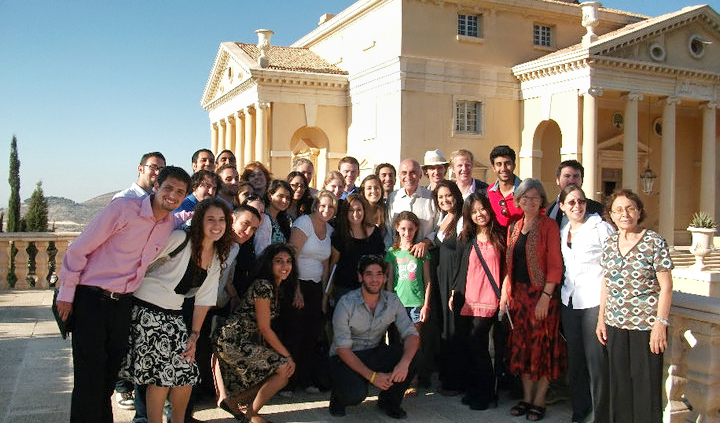On campus, the Israel-Palestine conflict is one of the fastest ways to begin a debate that will often end in name-calling and intransigence.
But unlike the people who fight in the conflicts in the Middle East, after a long day of flag-waving, figure-spouting and finger-pointing, UCLA students can get in their cars and go to the movies, an Israeli soldier told a group of UC students this summer.
The soldier, however, would not get to go home after his fight, and neither would his counterpart on the Palestinian side.
Some UCLA students have just returned from a trip to the Middle East, and they said it is more important now than ever to encourage an academic dialogue about the topic on campus.
To create this dialogue, students are bringing to UCLA the Olive Tree Initiative.
It is an organization that allows faculty and student leaders to tour the region by granting 20 UCLA students the chance to participate in a fully compensated 20-day trip to Israel, the Palestinian territories and other Arab countries in the region.
The initiative is a nonpartisan organization established at UC Irvine that seeks to create understanding and civility between pro-Israel, pro-Palestinian and undecided spectators, said Jason Youdeem, a fourth-year political science student and the co-founder of the UCLA chapter.
On previous trips, students spoke with soldiers from the Israel Defense Forces and members of the Fatah party, a branch of the Palestine Liberation Organization.
“The mission of (the Olive Tree Initiative) is to get people excited to create and promote dialogue,” Youdeem said.
The organization is in its early stages but is currently fundraising to meet its goal of $82,000 by late August of 2011.
The money would allow the group to send 20 students and two faculty members on the trip for free, including flights, hotels and food.
Next September’s trip will be open to any UCLA student who has demonstrated leadership focusing on the Middle East.
Muslims, Jews, Christians, pro-Palestinian, pro-Israeli and undecided observers were all part of the 30 students and three faculty members UC Irvine sent on this year’s trip in September.
“The idea of the trip is not to change anyone’s mind,” said Nadia Emely, a fifth-year anthropology and philosophy student and co-founder of the UCLA chapter. “There is no hidden agenda. There are many narratives in this conflict, and the mission is just to have a chance to see other sides.”
According to Emely, she and Youdeem, who were involved with the groups Students for Justice in Palestine and Bruins for Israel, respectively, were both motivated to create a less partisan organization at UCLA that gives students a balanced view of the issue, something they believed was lacking on campus before.
Other students echo the idea that the UCLA campus is too polarized when it comes to the Israel-Palestine conflict.
“I’ve always been very interested in the region and the conflict, but I never got involved because of the bias in the groups of campus. This organization is largely apolitical and doesn’t have a goal other than to educate,” said Daniel Dokhanian, a fourth-year sociology student and a member of the organization who plans on going on the trip next September.
Aside from the trip to the Middle East, the Olive Tree Initiative will be working with the UCLA Middle East Peace Coalition to create student events and meetings, but the organization’s emphasis this year will be the trip and the significant fundraising it will involve, Youdeem said.
“We aren’t talking about bake sales here,” he said. “We’re talking about engaging the Los Angeles community and asking it to donate to an organization that has real value and that can improve and expands students’ and the wider campus atmosphere’s understanding of a very real and important issue.”
